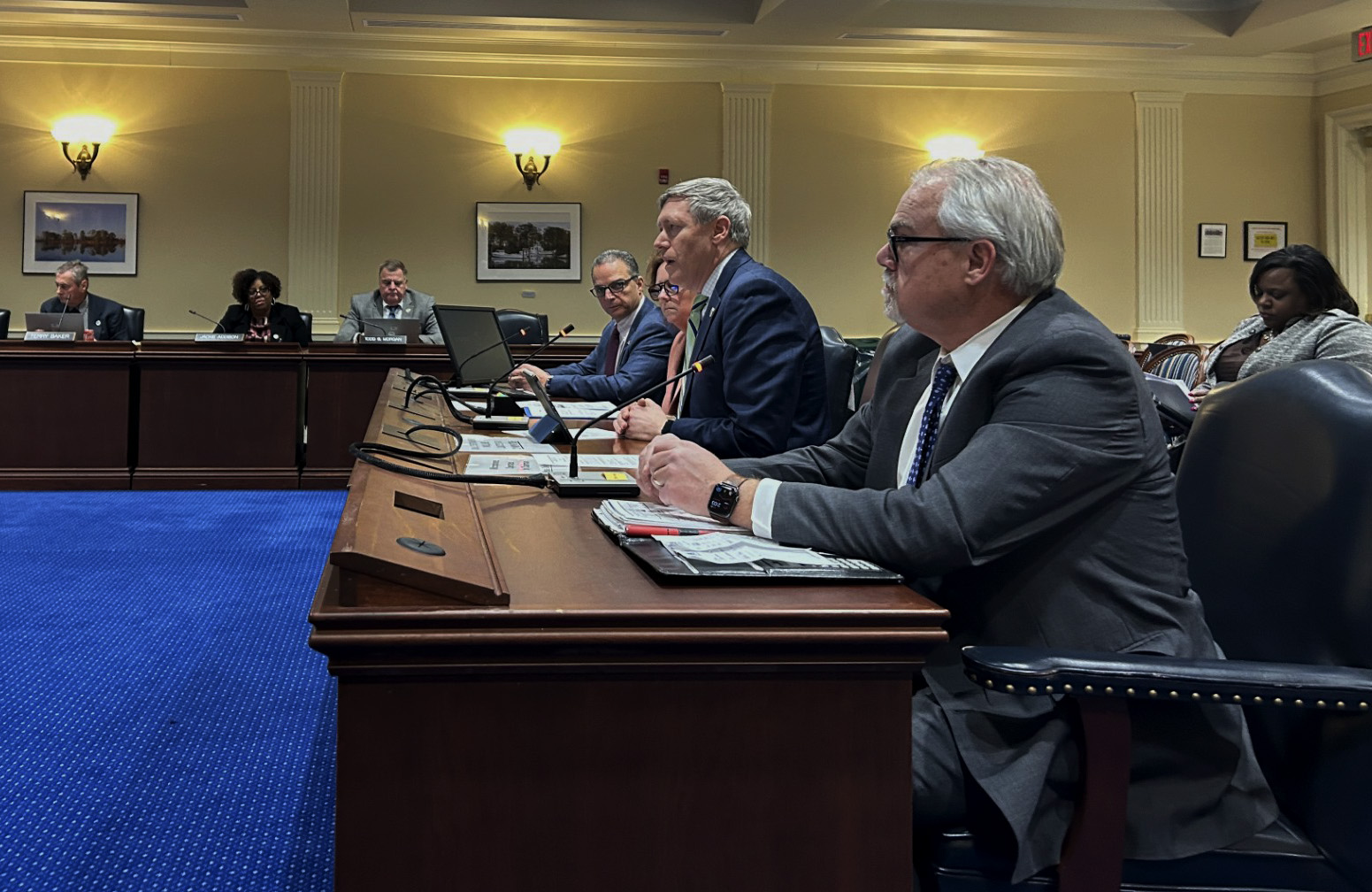Four flocks of chickens on Maryland’s Eastern Shore have tested positive for the avian influenza virus, also known as avian flu, since early January.
Maryland state agencies are now hurrying to contain the outbreak, the further spread of which could hobble one of the region’s core industries and raise concerns about the virus’ transfer to humans.
Maryland Secretary of Agriculture Kevin Atticks appeared alongside other state health and agriculture officials before the state House Environment and Transportation Committee on Friday to brief lawmakers on the outbreak and the state’s response.
“Poultry is king on the Eastern Shore,” he told the Capital News Service before the hearing. An outbreak in this important Maryland industry could hit the economy well beyond the four commercial farms with positive cases, he added.
While human health risks of the virus are low, said Deputy Secretary of Public Health Services Nilesh Kalyanaraman, “a lot of the concern here is not just on the livestock and poultry side, but also on the potential for transmission – and potentially mutations – that can make this a pandemic.”
The current outbreak is the largest in Maryland since 2022, when chickens on five farms across the state tested positive for the virus. Since past outbreaks, state agencies and the Delmarva Peninsula’s poultry industry have adopted strict sanitation practices to prevent the virus’s spread. But the close proximity of farms may undercut those precautions, expanding the number of farmers impacted by even a small outbreak.
Wild birds, including the geese that migrate over the Delmarva Peninsula, are primary carriers of the virus. Maryland’s Department of Agriculture and other government partners have worked with farmers for more than a decade to limit exposure to the disease.
When a chicken tests positive for the virus, farmers cull their entire flock and begin a decontamination process that can last well over a month. Meanwhile, growers nearby are temporarily barred from obtaining new chickens, cutting into their annual earnings. While the U.S. Department of Agriculture pays for decontamination and generally compensates the affected farmers, the department does not offer the same assistance to nearby farmers who lose income after an outbreak.
Maryland State Veterinarian Dr. Jennifer Trout told lawmakers on Friday that some 223 poultry farms and backyard flocks were close enough to this month’s outbreaks to be subject to additional inspections. She did not specify how many farms were within the three-kilometer “infected zones.”
Dr. Jonathan Moyle, a poultry specialist with the University of Maryland Extension’s Lower Eastern Shore Research and Education Center in Salisbury, says the density of poultry farms in parts of the Eastern Shore can expand the impacts of an avian flu outbreak. “Talking to some of the farmers in the past,” he told CNS, “some of the biggest stresses were, ‘I got a disease on my farm, and Jim down the road can’t get birds.’ That stresses them because their friends are impacted.’”
But Moyle argues that density is necessary for the region’s poultry industry to operate efficiently. “When this all started – the industry – it centered around feed mills and processing plants, right?” he said. “There’s always been diminishing returns the farther out you get.”
In 2023, Sens. Chris Coons (D-Delaware) and Roger Wicker (R-Mississippi) introduced a proposal to expand the USDA’s compensation program to cover poultry growers within the control zones around viral outbreaks. Despite bipartisan backing, the proposal is currently trapped in gridlock on Capitol Hill surrounding the next iteration of the Farm Bill.
While the current avian flu outbreak is not yet under control, Atticks told state lawmakers on Friday that his agency is collaborating closely with counterparts in Delaware and Virginia, as well as with the USDA, to avoid more serious economic consequences. “We do move as one when we’re dealing with this industry on the shore,” he said.
So far, Deputy Secretary of Public Health Services Kalyanaraman added, none of the 67 recent cases of avian influenza across the country have been linked to human-to-human transmission. As a precaution, his agency is distributing personal protective equipment to farm workers and has stockpiled medications to treat the virus.

